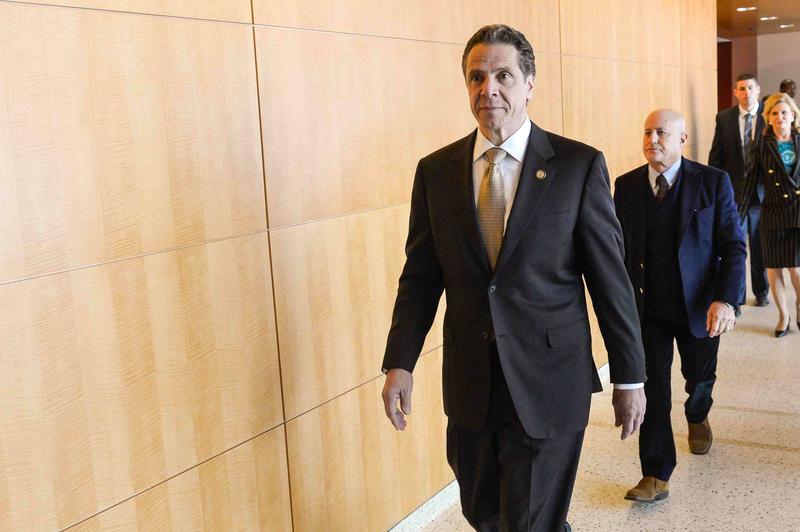
Governor Andrew Cuomo, in his first appearance since the controversy over his disbanded ethics commission was detailed in the New York Times, delivered a spirited speech in Buffalo, touting the work he’s done to help the city’s troubled economy, calling it an “unbelievable turn around” and announcing the creation of over 600 new jobs.
But though Cuomo traveled to the far Western portion of the state, he could not escape questions about his troubled Moreland Commission on ethics, which is now being investigated by Manhattan based U.S. Attorney Preet Bharara. The Times story detailed alleged interference in the commission’s probes, when the investigations came too close to the governor’s top political donors. The governor ended the commission shortly afterward. Since then, the U.S. Attorney has picked up the suspended cases and has continued the probes.
Cuomo, in his first public comments on the controversy, called the commission a “phenomenal success.” He said it provided the “stimulus” to pass a new ethics bill, which Cuomo called "historic reform."
The package was agreed to by the legislature in April, at the same time that the Moreland Commission was disbanded. Government reform groups widely condemned the ethics package as too weak, for failing to achieve public financing of campaigns, and said Cuomo should not have given up the commission. The governor acknowledged those criticisms.
“Is it perfect? No. Is there more to do? Yes,” the governor said. “But it worked. And the commission members should feel very, very good about what they did.”
The governor says he ended the commission, even though it was in the midst of probes, because he doesn’t “believe the state needs another expensive prosecutor’s office."
Cuomo offered an indirect explanation to reports that his top aide, Larry Schwartz, ordered commission subpoenas to be rescinded, saying “by definition the commission took advice and opinion from many, many people."
“No one ever said they shouldn’t be talking to people or get advise and consultation from people,” Cuomo said.
Cuomo’s version was backed up by the commission’s former co-chair. Onondaga County District Attorney, William Fitzpatrick, issued a four-page statement denying that he was in any way influenced by Cuomo’s staff during the Moreland corruption probes. Fitzpatrick said the notion was “ridiculous” and had the investigation been tampered with, he would have resigned.
According to the Times report, Fitzpatrick said in an e-mail obtained by the paper that Chief of Staff Schwartz needed to understand that the commission was independent and needed to be treated as independent. Cuomo called any conclusion that his office tampered with probes “ludicrous” and “false.”
The governor would not comment on newspaper reports that members of his staff have been subpoenaed by federal prosecutors.
The Moreland Commission controversy continues to play out in the national media.
Cuomo’s handling of the issue was a topic of discussion on MSNBC’s "Morning Joe," where co-host Joe Scarborough questioned Cuomo’s earlier comments made to the Crain’s editorial board. The governor told the board that the commission was his, and he could appoint or un-appoint anyone he wanted, and end the commission whenever it suited him.
“I’m stunned in 2014 how ham-fisted this is,” Scarborough said. “This is straight out of Louisiana. This is Huey Long material.”
The governor’s opponents are working to keep the Moreland controversy alive. Cuomo’s Democratic primary challenger Zephyr Teachout called for a further investigation, and Republican candidate for governor, Rob Astorino, is touring the state, describing Cuomo as “engulfed in scandal.” He said the governor’s explanations in Buffalo of his staff’s behavior as merely offering advice are inadequate.
Astorino compared Cuomo and his staff’s alleged actions to “a mafia boss coming forward and saying that he wants to make a suggestion — an offer that you can’t refuse.”
“That clearly is intimidation,” Astorino said. “And that’s what he and his staff did.”
The final arbiter of whether Cuomo’s staff improperly influenced the Moreland Commission on ethics will be U.S. Attorney Bharara, who said his investigation continues. It’s not known if the Moreland matter will be concluded before Election Day.
